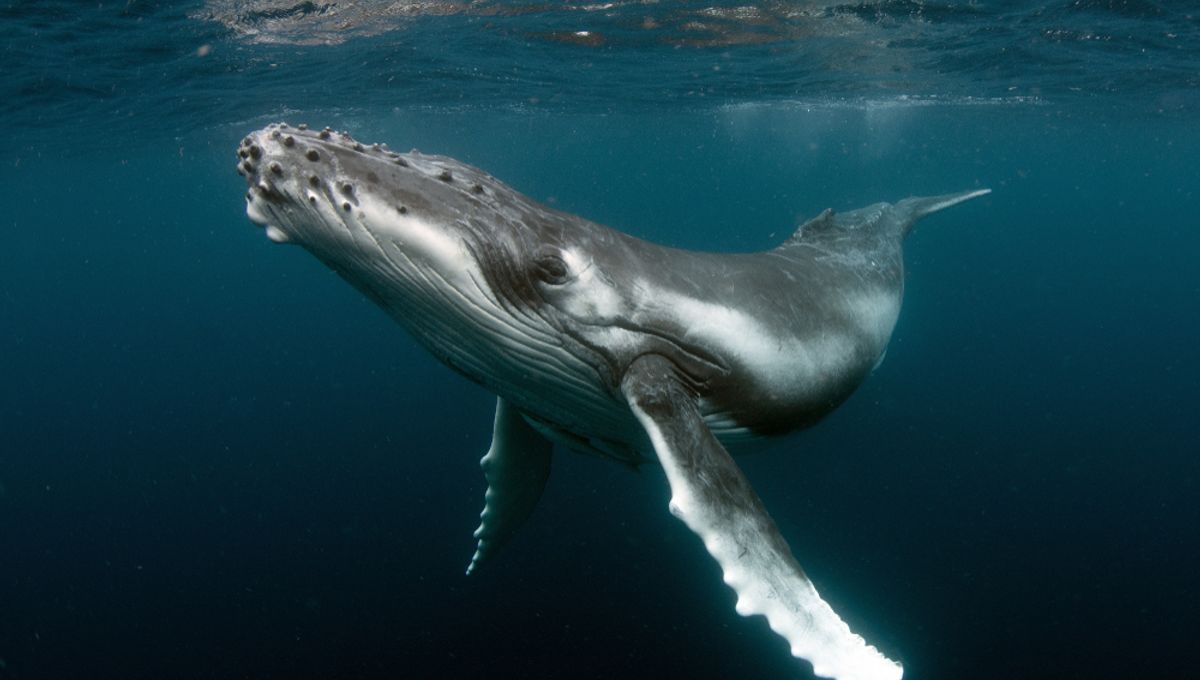
Whales swimming off the coast of California gulp down up to 10 million pieces of microplastic every single day, according to a new study. Clearly, plastic is not part of a well-balanced diet for a whale and the researchers arre concerned that this literal junk food is taking its toll on their health.
The study looked at three different species of baleen whales: blue whales, humpback whales, and fin whales. Humpback whales are more general feeders, eating microscopic shrimp-like creatures called krill and small fish, but blue and fin whales exclusively eat by filter feeding. This involves swallowing vast quantities of water and straining out krill. Unfortunately, krill eat plastics floating in the water, meaning each mouthful of food is riddled with microplastics.
Scientists from Stanford University took a close look at data collected from almost 200 tagged blue, fin, and humpback whales that were fitted with tracking devices. This showed that the whales tended to forage around 50 to 250 meters (164 to 820 feet) below the water’s surface, a depth that has the highest concentrations of microplastic in the open ocean.
Their calculations show that blue whales could be consuming about 10 million microplastic pieces per day, while humpback whales may consume up to 4 million pieces per day. Humpback whales that primarily feast on fish ingest an estimated 200,000 pieces of microplastic per day, but those that eat mostly krill ingest at least 1 million pieces.
The number of microplastics being ingested by whales might be even higher for those foraging in more polluted seas, such as the Mediterranean Sea, the researchers noted.
The impact of the whales consuming vast quantities of microplastics is not certain, but it could be affecting them in a number of ways. Firstly, the researchers explain that it could be making their diets way less nutritious. If the krill are loaded with microplastics, each lunge by the colossal whales could reap fewer calories.
“We need more research to understand whether krill that consume microplastics grow less oil-rich, and whether fish may be less meaty, less fatty, all due to having eaten microplastics that gives them the idea that they’re full,” Shirel Kahane-Rapport, lead study author who worked on the research as a PhD student in the Goldbogen Lab at Stanford, said in a statement.
“If patches are dense with prey but not nutritious, that is a waste of their time, because they’ve eaten something that is essentially garbage. It’s like training for a marathon and eating only jelly beans.”
Secondly, microplastics might also be taking a more direct toll on the whales’ bodies. “It could be scratching the linings of their stomach. It could be absorbed into the bloodstream, or it could all pass through the animal. We don’t know yet,” Kahane-Rapport explained.
We still know very little about how microplastics affect the health of marine animals – let alone humans. Considering how prolific microplastics have become in the natural world over such a short space of time, it’s a question that desperately needs an answer.
The new study was published in the journal Nature Communications.
Source Link: Whales Gulp Down 10 Million Microplastic Particles Every Day